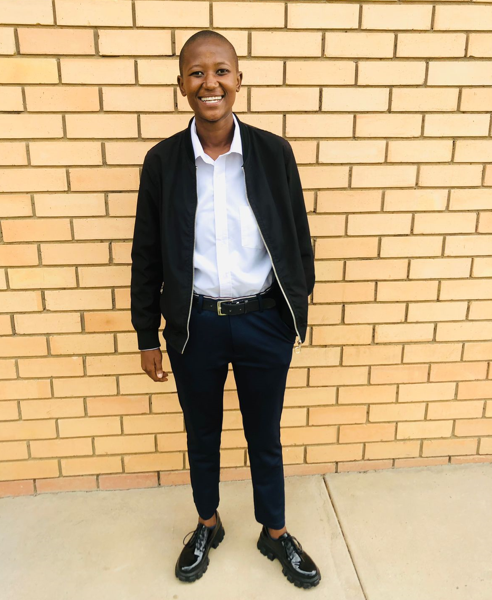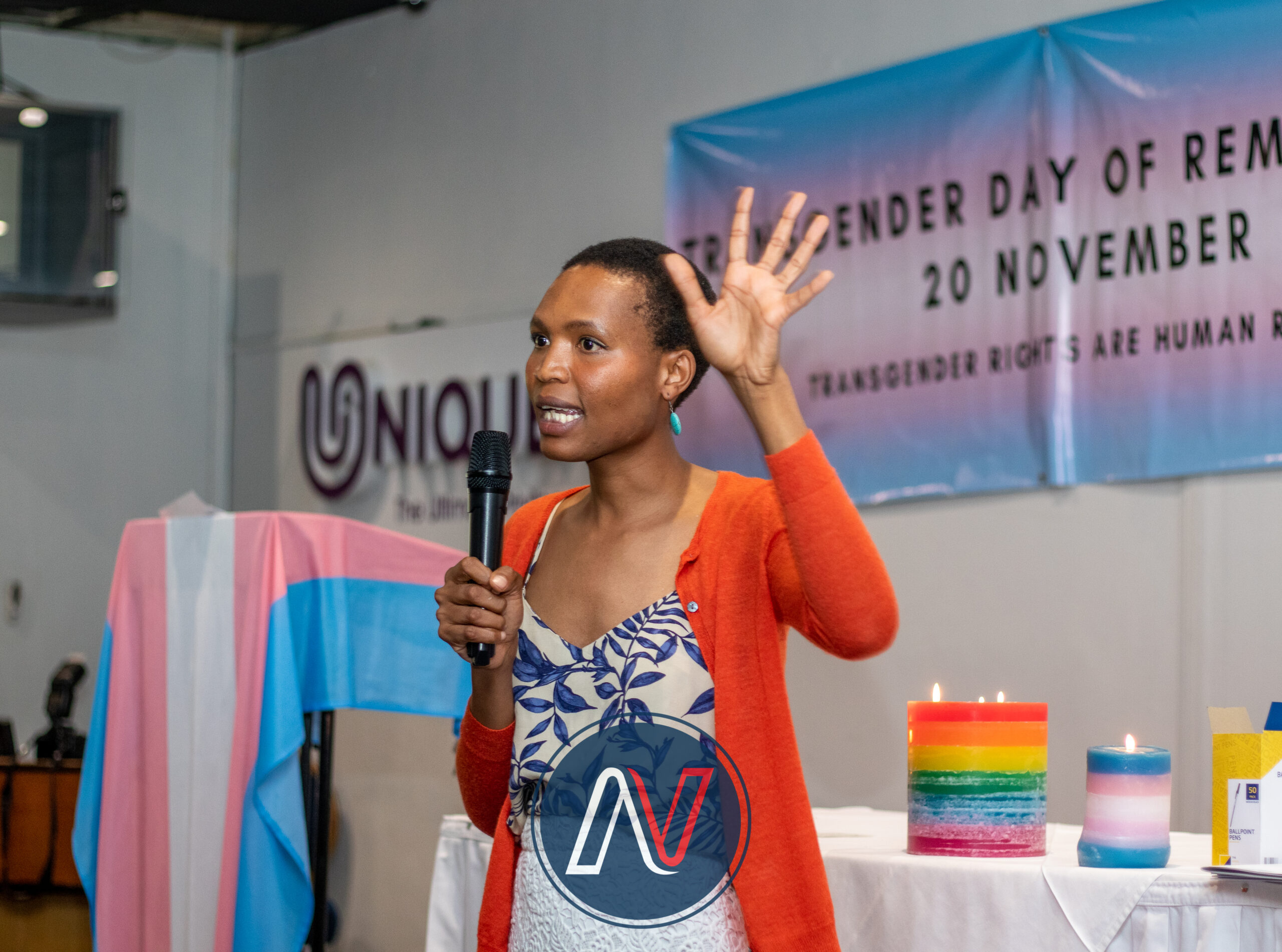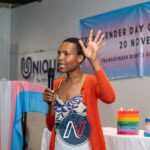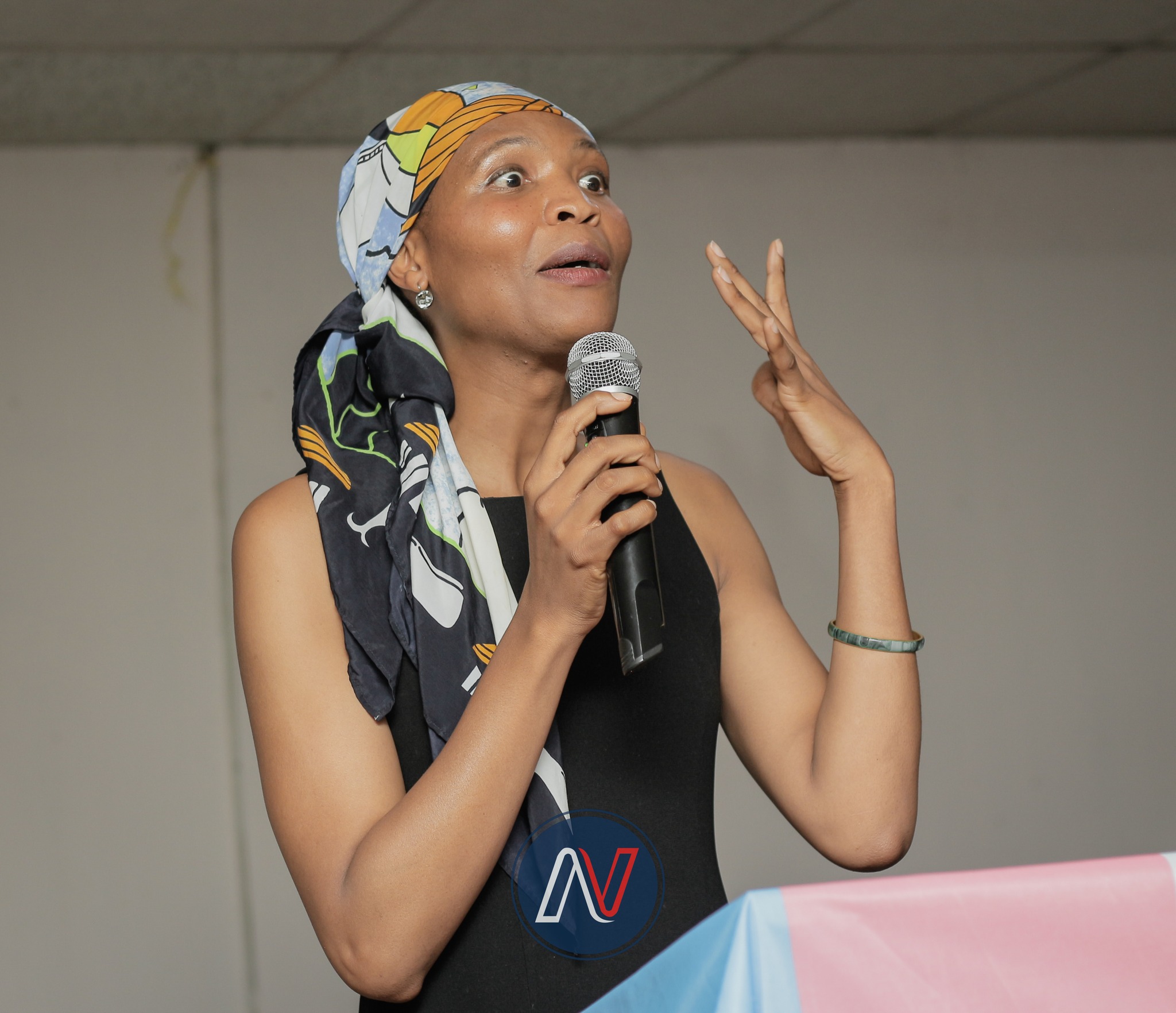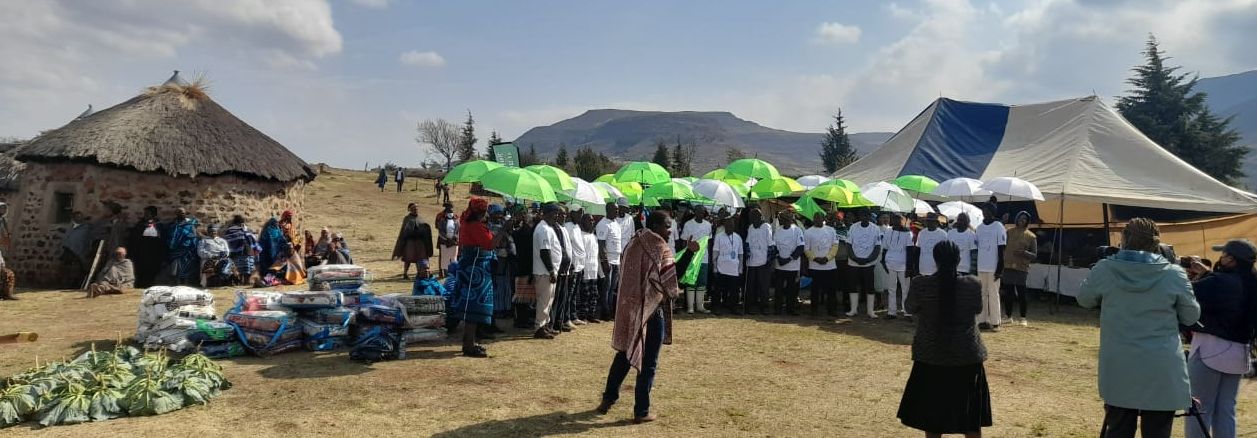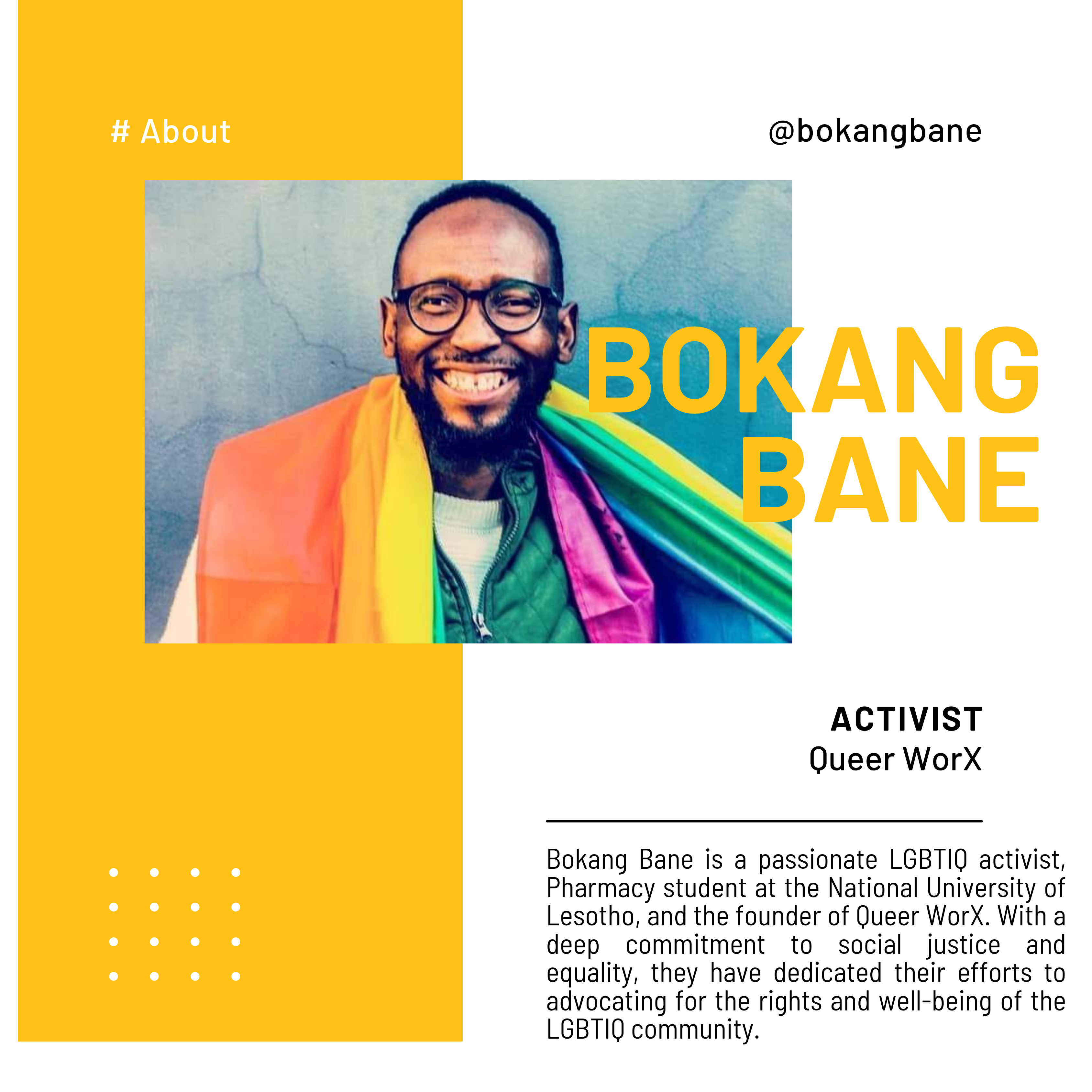Moleboheng Motšepeli, who prefers to be called Royal, speaks with a deep, resonant calm about his life today: “I am living my life fully, not hiding who I really am.”
That peace, however, was hard-won, earned after years of confusion, denial, and living what he now describes as a “fake identity.”
Royal is a transgender man living in Lesotho.
His journey, from being a girl forced into dresses to boldly claiming his identity as a man, is a powerful story of self-discovery in a society that still struggles to understand what it means to be transgender.
From a young age, Royal felt a profound disconnect between the gender assigned to him at birth and who he truly was. Raised by different family members, his identity was often visible to others even if they lacked the language to describe it.
His aunt recalls people saying he was “more of a boy than a girl.” He preferred the company of boys and felt most at ease doing activities traditionally associated with them, herding livestock, crafting toy cars from wire, and playing football.
Despite these signs, his family tried to steer him toward a female identity. His aunt bought him dresses he disliked, and his grandmother insisted he spend time with girls. When Royal discovered the football field, he finally found solace.
“I could enjoy my time with boys,” he remembers, while his grandmother reassured others that he would “change” as he grew older, never realising the depth of his inner truth.
The real struggle began when Royal returned to his aunt’s home in Maseru. The boys he once played with had grown older and no longer felt comfortable around someone they perceived as a girl. Forced to socialise with girls again, Royal began losing confidence.
His female friends labelled him a lesbian, a word that felt as wrong as the dresses.
“That used to offend me because they never knew what I was going through, being lost in my own being,” he says.
He felt constantly scrutinised: “Is it a he or a she, or maybe a lesbian?” The confusion around him only deepened his own inner conflict.
By 2018, Royal had reached a breaking point. He decided he could no longer live in denial. He publicly announced on social media that he was transitioning and fully embraced his identity. It was a liberating shift. As an independent adult, he began choosing his own clothes and expressing himself openly.
The revelation deeply affected his family, especially his aunt. When she confronted him about having “boyfriends,” Royal finally opened up. She reacted emotionally, and he sensed she realised she had once pushed him into a role he never identified with.
Coming out shocked many who had known him growing up, but for Royal, it brought immense peace.
“I don’t regret coming out because now I’m living my life fully, not hiding who I really am. I no longer feel like I’m trapped in someone else’s body.”
Still, life as a transgender person in Lesotho remains challenging. Royal points to widespread misconceptions: many people see being transgender as foreign or a choice, fuelling stigma and prejudice. Harassment is common, physical, sexual, and verbal, often coming from other men who shame or threaten him for who he is.
Even in his church, acceptance was hard to find. Members told him to wear dresses and insisted he was a girl who would never be a boy, pressuring him to stop “acting like one.”
Royal’s message is simple yet powerful: this is not a choice. He calls on government and society to recognise transgender people as full human beings with rights.
“We did not choose what we are. We will not live up to other people’s expectations while they live their lives freely.”
Dee Malelu, Faith and Advocacy Coordinator at the People’s Matrix, says that over the past decade, attitudes toward the LGBTQI+ community in Lesotho have begun to shift, slowly but noticeably.
While stigma and discrimination remain widespread, he notes that more Basotho are now engaging in open conversations about sexuality and human dignity.
“This change has been driven largely by grassroots advocacy, storytelling, and faith-based dialogues that connect inclusion to our shared cultural and spiritual values, such as Ubuntu and respect for human dignity,” Malelu explains.
“Visibility through Pride events, social media, and personal testimonies has also helped humanise LGBTQI+ experiences, challenging long-held myths and fears.”
According to Malelu, the most persistent challenges include family rejection, faith-based discrimination, and social violence, often justified using cultural or religious beliefs.
“Many LGBTQI+ persons face deep internal conflict between their spirituality and identity,” he says. “Others are denied access to essential services or safety within their own communities.”
He emphasises that the most effective interventions are those that are dialogue-based and healing-centered, bringing together religious leaders, parents, and LGBTQI+ individuals to foster mutual understanding.
“Available programmes help individuals and families heal from internalised stigma, while community dialogues and media campaigns challenge harmful narratives at the societal level,” Malelu adds.
“Real change happens when love, empathy, and human dignity become central to how we talk about faith and identity.”
Royal’s personal journey unfolds against a backdrop of growing awareness but ongoing challenges for the transgender community in Lesotho.
Although Lesotho’s Constitution guarantees equality before the law, it does not explicitly prohibit discrimination based on sexual orientation or gender identity. Community-based organisations such as the People’s Matrix have been instrumental in pushing for policy reform and documenting the lived realities of LGBTQI+ Basotho.
A 2021 report by the United Nations Development Programme (UNDP) highlighted the severe lack of specific legal protections for transgender and gender-diverse people across many African nations, including Lesotho.
While Lesotho does not criminalise same-sex relationships, transgender people continue to experience high rates of social exclusion, harassment, and violence, especially in public spaces and when accessing essential services like healthcare and education.
Much of this discrimination, as Royal observes, stems from a deep-seated belief that transgender identity is “foreign.”
Summary
- His journey, from being a girl forced into dresses to boldly claiming his identity as a man, is a powerful story of self-discovery in a society that still struggles to understand what it means to be transgender.
- From a young age, Royal felt a profound disconnect between the gender assigned to him at birth and who he truly was.
- Members told him to wear dresses and insisted he was a girl who would never be a boy, pressuring him to stop “acting like one.

Ntsoaki Motaung is an award-winning health journalist from Lesotho, specializing in community health stories with a focus on sexual and reproductive health and rights, as well as HIV. She has contributed to platforms like “Be in the KNOW,” highlighting issues such as the exclusion of people with disabilities from HIV prevention efforts in Lesotho.
In addition to her journalism, Ntsoaki serves as the Country Coordinator for the Regional Media Action Plan Support Network (REMAPSEN). She is also a 2023 CPHIA Journalism Fellow.


